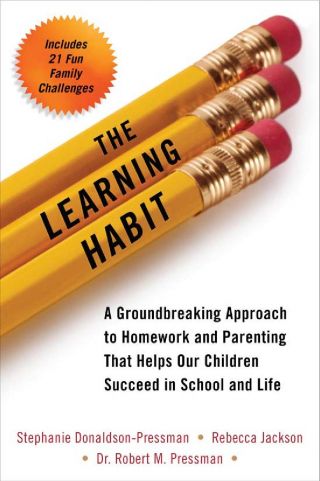
Motivation
Three Steps for Helping Children to Set Academic Goals
Lessons From The Learning Habit
Posted August 22, 2014

Most of us don’t necessarily pair “academic success” and “goal setting.” It seems too obvious—we want our children to have academic success as their goal. So, this is their goal. Right? The problem is not with the goal, but with how the goal is set.
Why are personal goals important for success in school?
The concept of children having personal goals—for academics and for other important areas of their lives—has been a subject of interest for Dr. Lori Desautels, Professor at Marian University. In an August 19, 2014 article for Edutopia she writes about the importance of having children make an emotional attachment to their goals. Let’s face it: our kids are measured for success based on goals that their parents, teachers, or coaches have set for them. How much “emotional attachment” can they possibly have?
If children are going to become academically successful, they need to feel ownership of their education. As parents, what can we do to set the stage for our kids to develop their own, very personal goals? The key is communication. Asking them how they feel and what they want —and then really listening to them.


How can parents use effective communication to empower their kids?
- Ask your children how they feel about school. This year, what do they think are going to be the easiest subjects for them? What will be the hardest? Listen to what they tell you. Don’t comment, give your opinion, and—most of all—refrain from giving any advice.
- After they tell you, ask them (for the hard subjects as well as for the easier ones) what they would like to be able to “do” by the end of the year? What big goal would make them feel proud? Again, no comment. Some children set goals that you believe are unrealistic; that is unimportant. These are their personal goals.
- Then tell them that you believe that they are the very best judges of how they are progressing toward their goals. That, in your mind, how they assess their progress, week by week, is more important to you than test grades. How they decide to do this, on a weekly basis, will be an interesting challenge for them. Setting short term goals to move toward a big goal is key. Some kids like to journal, others may set up a chart. For very young children, they will want to talk about their goals, for example, “This week, I want to be able to learn five new words.” Then, at the end of the week, they will “show you” the progress they have made.
Dr. Desautels includes a Self-Assessment chart in her article. Print it out as a guideline for the ways your children can measure how they are progressing toward their goals. This way of looking at academic achievement might seem radical, but when you really think about it, it makes sense. It gives kids a feeling of power and control over their schoolwork; it builds responsibility by learning to set small goals, measure progress, and assess their strategies. It helps them explore creative problem solving, if they aren’t progressing at the rate they want. Because these are goals they set for themselves, they have an emotional attachment to them.

Good Parent Inc.
LEARN MORE: For more information check out The Learning Habit. It is packed with information about GOAL SETTING and building skills essential for children’s success.
SIGN UP today to gain instant access to the dashboard on The Learning Habit study (the largest data set in history on family routines and habits.)

